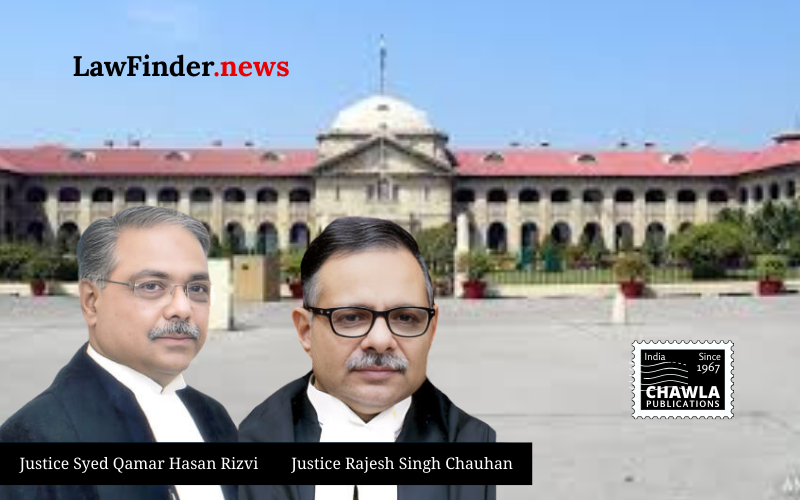Allahabad High Court Upholds Void Marriage Under Hindu Marriage Act, 1955. The court denies recall application, emphasizing the importance of legal declarations for marital status clarity.
The Allahabad High Court, in a significant ruling, upheld the void nature of a marriage solemnized in contravention of the Hindu Marriage Act, 1955, specifically under Section 11. The bench, comprising Justice Rajesh Singh Chauhan and Justice Syed Qamar Hasan Rizvi, heard the case of Ketan Rastogi and others versus the State of Uttar Pradesh and others, affirming that a marriage between a Hindu and a person of another religion without fulfilling the necessary conditions is void ab initio.
The judgment revolved around the legal intricacies of void marriages under Section 11, which states that any marriage solemnized without meeting the conditions specified in Section 5(i) is null and void. The court underscored that such marriages do not create legal rights and obligations, except those expressly recognized by the Act.
The case was brought forth by Smt. Mohini Verma, who sought to recall an order dated January 9, 2025, that had dismissed the writ petition based on a mutual agreement between the parties involved. The court had previously quashed an FIR and consequential proceedings based on the said compromise. However, subsequent developments raised concerns about the marital status of Mohini Verma, necessitating clarification under the law.
Despite the complexities surrounding the marriage, including a previous matrimonial relationship and conversion to Islam, the court maintained that the marriage between Ketan Rastogi and Mohini Verma was void as per the Hindu Marriage Act. The judgment emphasized that formal declarations by competent courts are prudent and intended for clarity of marital status, as highlighted by precedents such as Deoki Panjhiyara v. Shahshi Bhushan Narayan Azad and Yamunabai Anantrao Adhav v. Anantrao Shivram Adhav.
The court's decision also referenced the pivotal role of competent legal declarations in determining marital status, reaffirming that marriages covered by Section 11 are void ipso jure, thus void from the very inception. The judgment aligns with the Supreme Court's stance that a formal declaration, while not mandatory, is advisable for precaution and clarity.
Ultimately, the court rejected the recall application dated May 27, 2025, filed by Mohini Verma, concluding that the judicial pronouncement dated May 6, 2025, by the Family Court, which dismissed a pending case under Section 11, could not be challenged in the current proceedings. The bench advised the parties to seek appropriate legal recourse if aggrieved by the Family Court's judgment.
The case underscores the significance of adhering to statutory provisions and obtaining formal declarations of nullity to ensure clarity and compliance with legal requirements surrounding marital status.
Bottom Line:
Marriage solemnized in contravention of conditions under Section 5(i) of the Act is void ab initio and non-existent in law. A declaration of nullity by a competent court is advisable for precaution and record.
Statutory provision(s): Section 11, Section 5(i) of the Hindu Marriage Act, 1955
Ketan Rastogi v. State of U.P., (Allahabad)(Lucknow)(DB) : Law Finder Doc Id # 2790187




